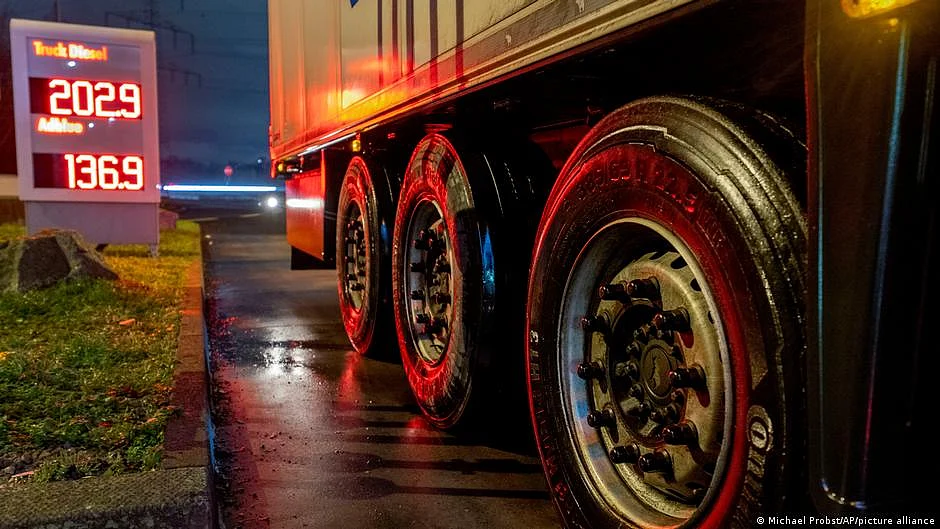Europe stockpiling Indian diesel as refined Russian fuel ban looms
Rise in Indian diesel exports amid growing criticism from US and some Western nations over India's imports of cheap Russian oil

As the European Union prepares to implement a ban on petroleum products refined from Russian crude starting January 2026, India’s diesel exports to Europe have risen to an 11-month high in August, according to vessel tracking data.
The Indian Express has reported that Industry experts expect Indian petroleum exports — particularly diesel — to remain strong in the months ahead, as European countries look to stockpile fuel and guard against potential supply disruptions.
The rise in Indian diesel exports comes amid increased criticism from the US and some Western nations over India's imports of discounted Russian oil and thereby helping finance Russia's 2022 invasion of Ukraine. These critics allege that India is re-exporting refined products made from Russian crude — mainly to Europe — despite the continent’s embargo on Russian oil and petroleum products.
India has rejected these accusations, stating that there is no illegality in importing Russian oil and exporting refined products. Officials have added that countries objecting to this practice are free to stop buying fuel from India.
India exported approximately 260,000 barrels per day (bpd) of diesel to Europe in August, marking a 63 per cent jump from July and a 103 per cent rise compared to August last year, according to preliminary tanker data from Kpler, a global real-time data and analytics firm.
Notably, all of these exports came from Reliance Industries (RIL), India’s largest private-sector refiner and fuel exporter. Total petroleum product exports from India to Europe in August reached nearly 399,000 bpd, up 41 per cent from the previous month.
One factor contributing to the surge is the advancement of scheduled maintenance at Shell’s Pernis refinery in the Netherlands. Originally planned for 2026, the shutdown has been brought forward, likely to avoid coinciding with the EU’s 2026 sanctions. While it remains unclear how the ban will be enforced — especially given the complexities of global crude sourcing — there are concerns that Europe could lose supply links with countries like India, China, and Turkey.
“This (advancing of maintenance at Pernis refinery) has surprised the market and us also; it was not what we expected. This shift likely reflects anticipation of the January 2026 EU sanctions on products refined from Russian crude,” said Sumit Ritolia, lead research analyst, refining & modelling at Kpler.
He added that petroleum exports from India are expected to remain strong, especially as West Asian refineries undergo major maintenance in the final quarter of the year, tightening supply to Europe.
“Exports should stay firm, and European buyers may accelerate liftings of gasoil (diesel) and jet fuel from India, given that in January 2026, sanctions kick in and the Middle Eastern refineries will be having a high maintenance in October-November, echoing the stockpiling seen ahead of the February 2023 EU ban on Russian products. This underscores India’s pivotal role as a swing supplier of middle distillates (fuels like diesel, jet fuel, and kerosene) to Europe,” Ritolia said.
The EU formally banned direct imports of petroleum products from Russia in February 2023 as part of sanctions imposed in response to the war in Ukraine. Ahead of that embargo, European nations had increased fuel imports significantly in order to build reserves.
In July, the EU announced a further extension of its sanctions, stating that, from 21 January 2026, it would prohibit the import of fuels derived from Russian crude — even if refined in third countries — excluding Canada, Norway, Switzerland, the UK, and the US. This expanded ban could impact India significantly, as Russian oil makes up a large portion of its import basket.
While the impact of the new rules remains uncertain, industry insiders say enforcement will depend on the details — especially given the complexity of fuel blending and sourcing.
“…enforcement remains uncertain since most Indian refineries process 60–70 per cent non-Russian crude and export widely. With RIL as the key exporter and operating two separate refining systems, Indian refiners are expected to manage compliance, but it is still too early to draw firm conclusions,” Ritolia said.
Officials in India’s oil industry said that, even if Europe stops importing fuels from India, the disruption would likely be temporary. They argue that Indian refiners would redirect exports to other markets.
Follow us on: Facebook, Twitter, Google News, Instagram
Join our official telegram channel (@nationalherald) and stay updated with the latest headlines
